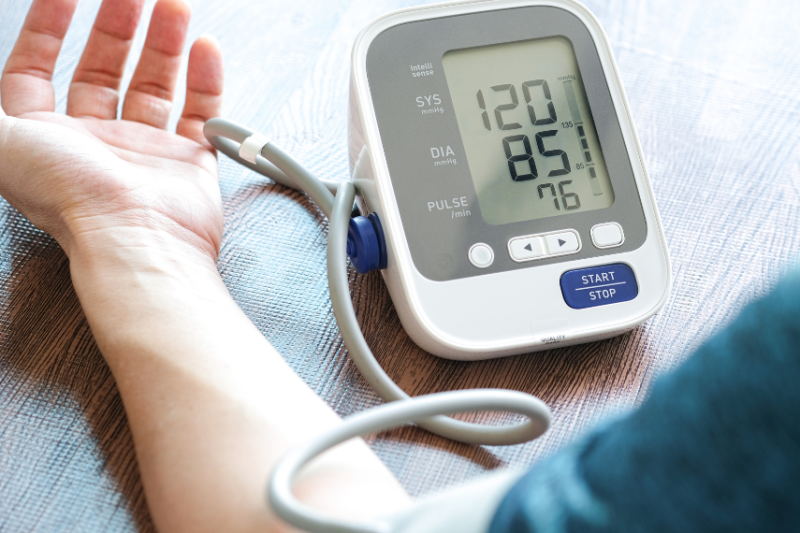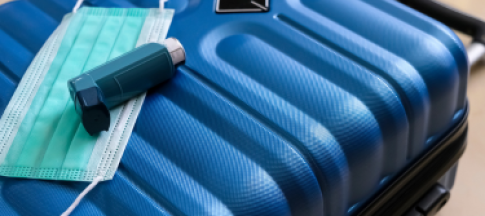
Just because you have high blood pressure doesn’t mean you can’t have a trip that’s fun, relaxing – and memorable for all the right reasons!
Here, we chat about how to travel safely with high blood pressure or hypertension, and what your travel insurance will cover.
The risks of travelling with high blood pressure
Travelling with a medical condition can come with some risks - but it doesn’t need to hold you back.
It’s just a good idea to be clued up on what could affect your blood pressure while you’re abroad, including:
- drinking lots of alcohol
- eating lots of salty foods
- low temperatures
- not drinking enough fluids
- high altitude areas
- long periods of sitting or lying down
High blood pressure and high cholesterol sometimes go hand in hand - check out our guide to travelling with high cholesterol for more info.
What does travel insurance cover for people with high blood pressure?
A typical travel insurance policy should cover:
- emergency medical fees
- lost, stolen or damaged medication
- the cost of cancelling or cutting your trip short because of your condition
- bringing you back to the UK if it’s medically needed
If you're in your golden years and travelling with high blood pressure, check out our guide to travel insurance for over 65s.
We’ve also got useful info for over 50s travel insurance.
Is high blood pressure a pre-existing medical condition?
Yes – when buying travel insurance, high blood pressure is considered a pre-existing medical condition.
We define a pre-existing medical condition as an illness or injury that:
- has been diagnosed by a medical professional
- under investigation by a medical professional
- existed within five years of booking your trip or your travel policy starting (whichever is later)
Do I have to mention that I have high blood pressure when buying travel insurance?
Yes – it’s super important to tell your insurer that you have high blood pressure when you buy your policy.
If you don’t and then need to claim on your travel insurance, you won’t be covered or your insurer will only pay part of the claim.
Will high blood pressure affect the price of my travel insurance?
It might make your travel insurance more expensive – but having to pay for your own medical care abroad would be far more expensive.
The cost of your travel insurance policy will always depend on:
- where you’re travelling to
- how long your trip is
- what you’ll be doing on your trip
- what condition you have and how severe it is
Tips for travelling with high blood pressure
We know you want to have a smooth and safe trip – here are some things to do before you set off to make that happen.
Prepare your medication
Make sure you’ve got enough medication for your trip and a portable blood pressure monitor if you need it.
Remember, prescription medications are allowed in your carry-on luggage.
You should also check that the country you’re travelling to lets you bring your specific medication across their borders.
Read our guide on how to travel safely with your medication.
Speak to a medical professional
Chat with a medical professional about where you’re going on holiday and get a health check-up.
They might advise you not to go to certain places or to travel by plane.
You should listen to their advice – even if it feels a bit inconvenient.
Organise your documents
Before you jet off, make sure you’ve packed:
- your travel insurance documents
- a list of the medications you take for high blood pressure
- your Global Health Insurance Card or the old European Health Insurance Card
- a note from a medical professional about your illness or your medical record
Check if it’s safe to travel to your destination
Some countries restrict certain medications or have climates that can affect your blood pressure. This is why it’s important to know what you’re getting into before heading off.
To do this you should:
- research the location of where you will be staying, and how far it is from the places you intend on visiting (this is particularly important if your blood pressure is affected by cold weather and you’re going to a cold place)
- check if your destination has any rules or restrictions around importing medication – in some cases, you might need to take your prescriptions with you to confirm that the medication you carry is for your own use
Ideally, you should avoid very high-altitude countries, like China, Chile, Andorra, Nepal and Peru.
Very cold places like Norway, Canada and Sweden can also be an issue. Low temperatures can increase your blood pressure, so keep this in mind!
The risks of flying with high blood pressure
There isn’t a legal blood pressure limit for flying – but it can be risky depending on how high your blood pressure is.
You may have to deal with nausea, vomiting or dizziness up high. If things get very bad, you could even have a seizure or heart failure.
Talk to a medical professional before you fly to see what they say – it's always better to be safe than sorry.
Tips for flying with high blood pressure
Here are some handy tips to keep yourself cool and collected on and before the flight.
Avoid stress beforehand
You may be a last-minute packer – but if you can, do all your packing and prep in good time before your trip, not the morning of!
Also, get to the airport with plenty of time to spare so you’re not rushing to get to the gate.
Getting prepared and staying on schedule can help keep you calm and ward off rising blood pressure.
Pack your carry-on with essentials
Your carry-on bag is the only luggage you’ll have with you from when you check in to when you land.
Pack it with everything you might need during your journey, including:
- a reusable bottle of water – refilled in duty-free if you’ve gone through security
- any scheduled medication – for example, something you take every few hours
- emergency medication – in case you get ill on the plane
Don’t forget to adjust when you take your medication if you’re changing time zones.
Avoid alcohol and stay hydrated
Try to avoid drinking alcohol in the airport or on the plane, because this can affect your blood pressure.
Drink lots of water to keep yourself hydrated.
Does a GHIC or EHIC cover my high blood pressure?
Yes, it can! You can use the Global Health Insurance Card (GHIC) to reduce medical costs when travelling in some EU countries.
Visit the NHS website to find out where you can use this health card.
Remember, the GHIC doesn’t cover all costs, like bringing you back to the UK if you need it. For that, you’ll need travel insurance.
Read our guide on using the GHIC or EHIC card.
What to do if you get ill abroad
If it’s urgent, call the emergency services or go to the nearest hospital.
Call your insurer’s emergency service or helpline as soon as possible. If you’re with us and your medical costs are likely to be over £500, give us a call. Our 24-hour emergency helpline is +44 (0)292 010 7777.
MoneyHelper Directory
If we can’t cover your medical condition, you can use the MoneyHelper directory to find a specialist insurer who might be able to cover you if you’ve been:
- refused travel insurance or had your policy cancelled
- offered cover with a medical exclusion that you can’t remove from your policy
- quoted a price for a travel insurance policy with high medical costs
MoneyHelper makes it easier to find and compare policies you can afford that cover your condition and medical needs.
Access the MoneyHelper directory online or call MoneyHelper on 0800 138 7777 (phone lines are open Monday to Friday, 8:00am to 6:00pm, excluding bank holidays).


